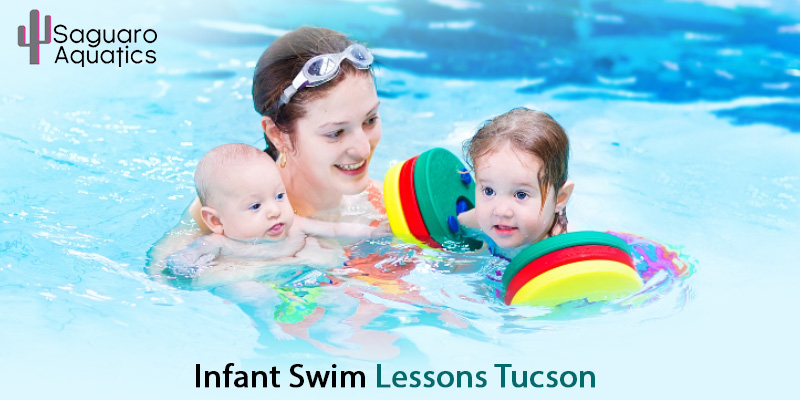If your toddler, who once loved bath time and was excited about a beach trip, suddenly hesitates around water, you’re not alone. Many young children develop a fear of water, leaving parents unsure about how to address it. However, it’s common for these fears to fade as children grow older. You can try various strategies to help your child overcome this fear and enjoy water activities again.
However, enrolling your little one in infant swim lessons Tucson is the best thing to do. Read on to learn everything about the fear of water faced by kids.
What causes childhood fear of water?
Developmental immaturity, in most instances, is the cause of fear of water in children. Kids don’t always know about water as something to fear and will happily splash away in the bath, ocean, or pool. But as they get older, it’s common for them to face fear of water.
The toddler and preschool years are when kids develop a fear of water. Here’s why:
- Toddlers notice the vastness and mystery of large water bodies.
- They recognize water as potentially dangerous without the ability to reason.
- Lack of life experience prevents them from understanding the actual safety of water.
- Big water bodies may appear foreboding, but toddlers lack the perspective to know they aren’t inherently scary.
- Parental guidance is crucial in reassuring and helping toddlers deal with these fears.
You can trust a reliable caregiver and expert instructors at infant swim lessons Tucson if you are a busy parent.
Some kids can brush these fears off more easily than others. If your baby had a difficult experience with water or a particularly unpleasant association with it, these fears may be more intense.
- Scary incidents like slipping or splashing intensify water fears in children.
- Annoying experiences, like water in the nose, make them reluctant to enter water again.
- Sensory processing issues or sensitivity can make water activities challenging.
- Past encounters shape their reluctance, affecting their perception of water.
- Addressing these concerns is crucial for helping children overcome water-related fears.
Strategies for easing your child’s fears
It’s natural to feel at a loss when your baby has a fear of water or fears that seem impossible to shake. It’s best to take an empathetic, measured, calm approach when dealing with your little one’s fears. After all, if you show stress, they will pick up on this, which will only cause more fear. Here are a few strategies to try:
Gradual Immersion
Letting your child get used to the water can be helpful. Maybe they only dip their toes in on the first day at infant swim lessons Tucson. The next day, to your surprise, they go up to their knees, then up to their waist, and many other instances like this. Some kids need extra time to feel comfortable. We recommend not to push it.
Fun Equipment
Colorful goggles, water wings with their favorite characters, and a reliable life jacket can provide some children a sense of comfort and security when entering the water. While these items can add fun, it’s crucial to stress that they are not toys.
Parents need to recognize that floatation devices should not create a false sense of security or serve as substitutes for hands-on supervision. Experts strongly advise against relying solely on these accessories and emphasize the need for active and vigilant supervision when children are in or around water.
One-On-One Swim Classes
When it comes to getting in the water, some kids are more likely to listen to an adult other than their parents. A kind, friendly, and patient swim instructor may do the trick — plus, they have experience with these scenes when it comes to getting young children comfortable in the water.
Get in With Them
For some children, having an adult in the water with them is crucial for building confidence. Spending several days gradually transitioning from carrying them or holding their hand to providing more independence can be effective. However, even as you step back, staying close is essential. However, it is advised for parents to remain within arm’s length of inexperienced swimmers at all times for enhanced safety and immediate assistance if needed.
Talk It Out
Having a normal talk with your baby can be helpful to understand the reason behind their fear. Sometimes, it may be difficult to know, especially if it’s a more general fear of water. But many kids will be able to tell you about a scary movie they saw involving water or a specific fear, such as a monster living at the bottom of a lake or pool. If you know what they are grappling with, it may be easier to help them overcome their fear and feel more at ease in the water.
The bottom line
Confronting a child’s fear of water requires patience. If basic strategies fail, consult professionals like doctors or certified swim instructors. Explore infant swim lessons Tucson, led by experienced instructors, to create a supportive environment for overcoming fears and learning vital swimming skills. Early intervention ensures a child’s swimming abilities develop easily.
If you want the best swimming classes for your little one, check out Saguaro Aquatics today!





